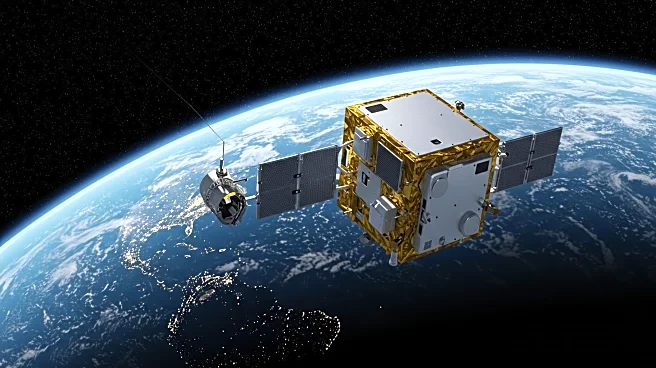What is the story about?
What's Happening?
NASA has announced the extension of its PREFIRE CubeSat mission, which is focused on collecting data related to Earth's climate, particularly in polar regions. The mission utilizes a pair of advanced spectrometers developed by NASA's Jet Propulsion Laboratory (JPL) to measure far-infrared wavelengths, providing insights into surface ice melt, snow accumulation, and cloud cover changes. The PREFIRE satellites have been primarily gathering data from Earth's polar regions but will now expand their focus globally. This mission aims to improve weather prediction models and enhance understanding of moisture circulation and storm formation. The CubeSats, built by Blue Canyon Technologies, were launched by Rocket Lab USA Inc. in 2024.
Why It's Important?
The extension of the PREFIRE mission is significant for climate research and weather forecasting. By expanding data collection beyond polar regions, the mission can provide comprehensive insights into global climate patterns. The data collected will be crucial for improving weather prediction models, which can lead to more accurate forecasts and better preparedness for extreme weather events. This mission also contributes to understanding the energy exchange between Earth and space, which is vital for assessing climate change impacts. Stakeholders in climate science, meteorology, and environmental policy stand to benefit from the enhanced data and insights provided by the PREFIRE mission.
What's Next?
With the mission's extension, the PREFIRE team will focus on integrating the new data into existing weather models to refine predictions. The expanded data collection will allow researchers to study the size of ice particles in clouds and their impact on energy exchange. This could lead to advancements in understanding precipitation patterns and storm dynamics. The mission's findings may influence future climate policies and strategies for mitigating climate change effects. Continued collaboration between NASA, JPL, and the University of Wisconsin–Madison will be essential in processing and analyzing the data collected by the CubeSats.















